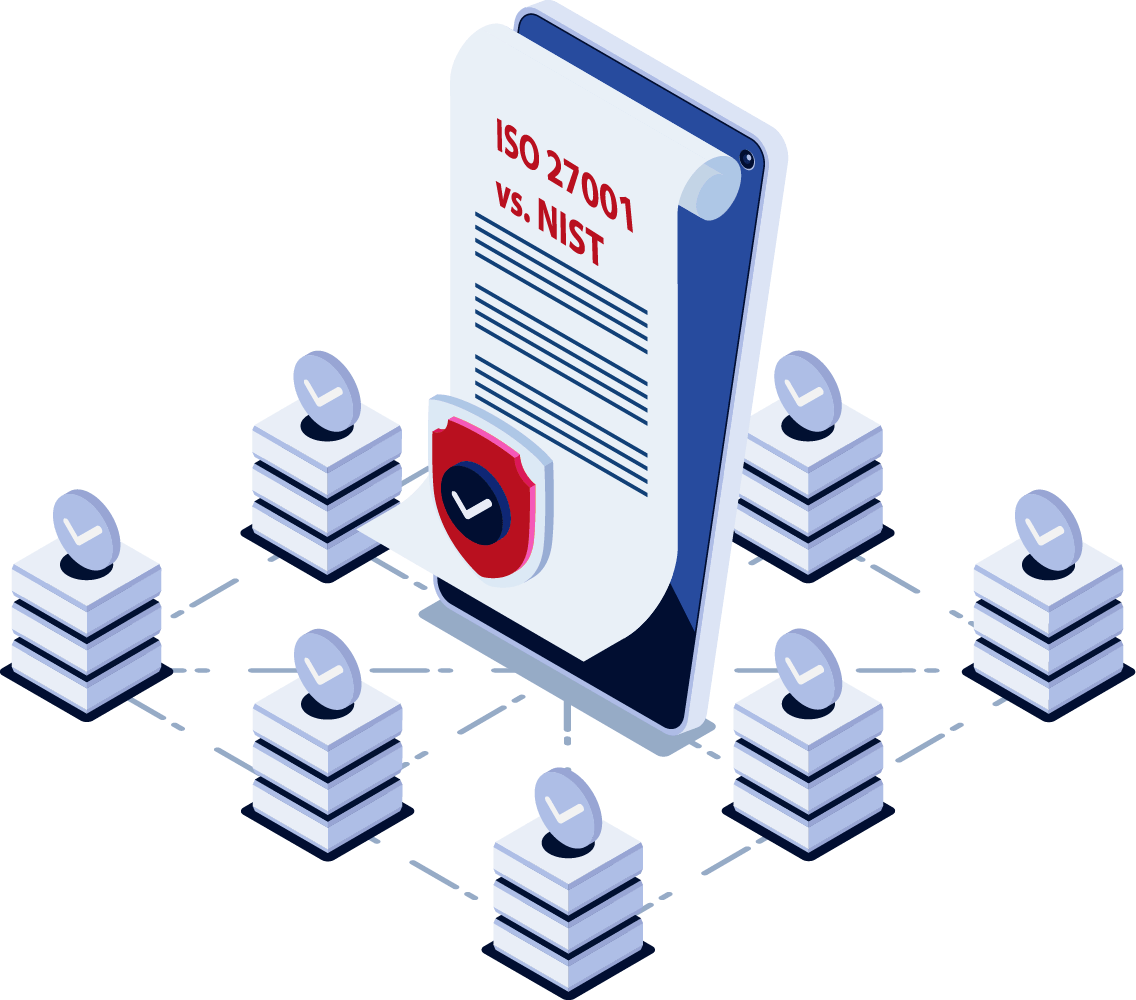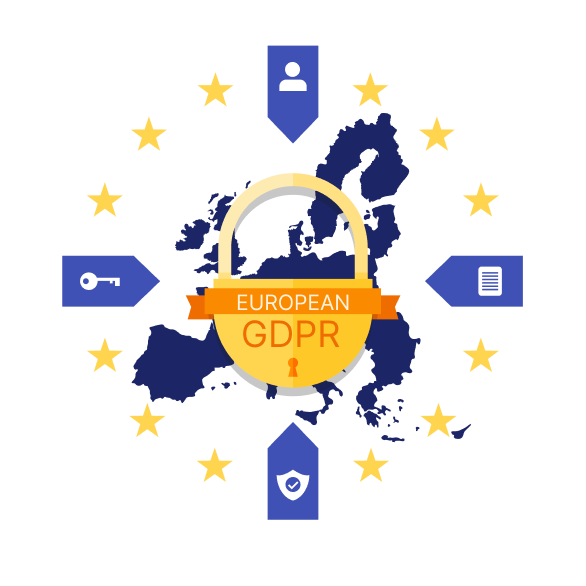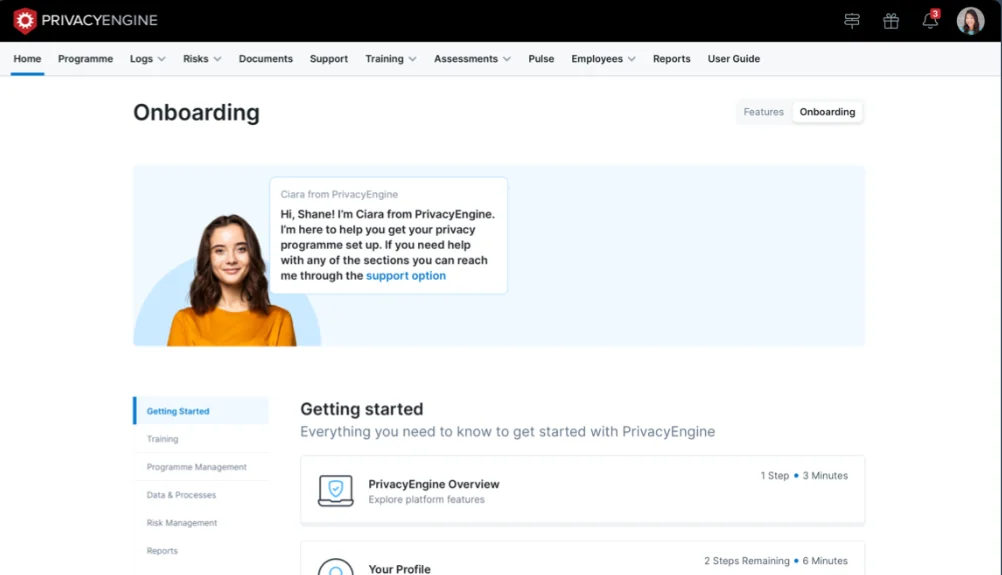Data protection has become an increasingly important topic in recent years, as organisations strive to safeguard sensitive information and maintain the trust of their customers. One of the most effective ways to ensure data protection is through proper training. In this article, we will explore the importance of data protection training and the various courses available to individuals and organisations alike.
The Importance of Data Protection Training
Effective data protection training is essential for a number of reasons. First and foremost, it helps organisations comply with data protection laws and regulations, such as the General Data Protection Regulation (GDPR). By familiarising employees with the requirements and guidelines outlined in these laws, organisations can minimise the risk of data breaches and avoid hefty fines.
Data protection training is also crucial for creating a culture of awareness and responsibility within an organisation. When employees understand the potential consequences of mishandling data, they are more likely to take the necessary precautions to protect it. This can range from simple actions, such as password hygiene, to more complex tasks, such as secure data storage and transmission.
Furthermore, data protection training equips employees with the knowledge and tools to identify and respond to data breaches. By familiarising individuals with the signs of a breach, organisations can minimise the impact and swiftly implement measures to mitigate the damage. This proactive approach can greatly reduce the financial and reputational costs associated with data breaches.
One aspect of data protection training that is often overlooked is the importance of understanding the different types of data that organisations handle. Employees should be educated on the various categories of data, such as personal data, sensitive data, and confidential data. This knowledge enables employees to appropriately handle and protect different types of data based on their level of sensitivity and the potential risks associated with their exposure.
Data protection training should not only cover understanding data categories but also emphasise the importance of data minimisation. This principle advocates for the collection and retention of the minimum amount of data required to fulfil a specific purpose. By limiting the amount of data collected, organisations can reduce the risk of data breaches, and even if a breach does occur, they can minimise the potential impact.
It is essential to provide data protection training to employees in order to educate them about the proper use of encryption and secure communication channels. Encryption is a vital tool that helps to protect data by ensuring that only authorised individuals can access and understand the information. By training employees on how to encrypt sensitive data and communicate securely, organisations can strengthen their overall data protection practices.
Furthermore, data protection training should include information on the role of data protection officers (DPOs) and the importance of their involvement in data protection initiatives. DPOs play a critical role in ensuring compliance with data protection laws and regulations, and they serve as a valuable resource for employees seeking guidance on data protection matters. By promoting collaboration and communication between employees and DPOs, organizations can strengthen their data protection practices.
Finally, data protection training should focus on the continuously evolving nature of data protection and the necessity for ongoing education. With the advancement of technology and the emergence of new threats, it’s vital for employees to stay up-to-date with the most current best practices and security measures. Regular training sessions and refresher courses can assist employees in staying informed and prepared to tackle new challenges in the constantly changing realm of data protection.
Wider Data Privacy Training
Data protection training is not limited to employees directly involved in handling data. In fact, a comprehensive data protection strategy should extend to all individuals within an organisation. This includes managers, executives, and even board members. Wider data privacy training ensures that everyone understands their role and responsibilities in protecting sensitive information.
By including individuals at all levels of the organisation, data privacy training helps foster a culture of collective responsibility. It encourages open communication and collaboration, ensuring that data protection is a shared goal rather than a burden placed solely on the IT department or data protection officer.
Managers play a vital role in the implementation and enforcement of data protection policies. They are responsible for overseeing their teams’ compliance with data privacy regulations and ensuring that employees are trained on best practices. By including managers in data privacy training, organisations can ensure that these key decision-makers have a deep understanding of the importance of data protection and can effectively communicate its significance to their teams.
Furthermore, executives and board members have a unique perspective on data privacy. They are responsible for setting the overall strategic direction of the organisation and making critical decisions that impact data protection. By including them in data privacy training, organisations can ensure that these leaders are well-informed about the risks and implications of data breaches, enabling them to make informed decisions that prioritise data security.
Wider data privacy training also serves as an opportunity for organisations to educate employees on emerging threats and evolving regulations. Data protection is not a static field; it is constantly evolving as new technologies and regulations emerge. By providing comprehensive training to all individuals within the organisation, organisations can ensure that everyone is up to date on the latest best practices and compliance requirements.
Moreover, wider data privacy training can help foster a sense of accountability and ownership among employees. When everyone within the organisation is trained on data protection, it sends a clear message that protecting sensitive information is a shared responsibility. This can lead to increased vigilance and awareness among employees, reducing the likelihood of human error or negligence that could result in a data breach.
In conclusion, wider data privacy training is essential for organisations to create a culture of collective responsibility and ensure that everyone understands their role in protecting sensitive information. By including individuals at all levels, from managers to executives and board members, organisations can foster a comprehensive understanding of data protection and promote a proactive approach to data privacy.
CIPP/E and CIPM Training
Certified Information Privacy Professional/Europe (CIPP/E) and Certified Information Privacy Manager (CIPM) are two highly recognised certifications in the field of data protection. CIPP/E focuses on European privacy laws and regulations, while CIPM provides a comprehensive understanding of privacy program management.
By undertaking CIPP/E and CIPM training, individuals can gain an in-depth knowledge of the legal, operational, and technical aspects of data protection. This includes topics such as data subject rights, data protection impact assessments, and privacy policies. These certifications not only enhance an individual’s understanding of data protection but also demonstrate their commitment to best practices in this field.
CIPP – Certified Information Privacy Professional Training
Certified Information Privacy Professional (CIPP) training is designed for professionals who deal with privacy laws and regulations on a global scale. This certification covers a broad range of topics, including the legal and technical aspects of data protection, privacy management frameworks, and data governance.
By undertaking CIPP training, individuals can gain a comprehensive understanding of privacy regulations worldwide, allowing them to effectively navigate the complex landscape of data protection. This certification is particularly valuable for individuals who operate in multinational organisations or within the legal or compliance sectors.
CIPM – Certified Information Privacy Manager
The Certified Information Privacy Manager (CIPM) certification is tailored for individuals who are responsible for managing privacy programs within organisations. This certification covers topics such as privacy program governance, privacy policies and procedures, and privacy awareness training.
By undertaking CIPM training, individuals gain the skills and knowledge necessary to design, implement, and manage a comprehensive privacy program. This includes creating policies and procedures that align with industry best practices, training employees on data protection, and ensuring ongoing compliance with relevant privacy laws and regulations.
CIPT – Certified Information Privacy Technologist
Certified Information Privacy Technologist (CIPT) training is specifically designed for IT professionals who are involved in the design and development of privacy-enhancing technologies. This certification covers topics such as privacy engineering, data protection by design, and privacy risk management.
By undertaking CIPT training, IT professionals can gain an understanding of the technical aspects of data protection and develop the skills necessary to implement privacy controls within their organisation’s systems and infrastructure. This certification is particularly valuable for individuals involved in software development, data security, or IT architecture.
IAPP Training
The International Association of Privacy Professionals (IAPP) offers a wide range of training courses, certifications, and resources for individuals and organisations seeking to enhance their data protection knowledge. These courses cover various topics, ranging from the fundamentals of data protection to advanced privacy program management.
By enrolling in IAPP training, individuals can gain access to comprehensive educational resources, networking opportunities, and industry-leading expertise. This equips them with the skills and knowledge necessary to navigate the complexities of data protection and comply with evolving privacy regulations.
Book your IAPP Data Privacy Training through PrivacyEngine
If you are interested in enrolling in IAPP data privacy training courses, PrivacyEngine can help. PrivacyEngine is a leading provider of data privacy solutions, offering a wide range of services, including training, consulting, and software solutions.
By partnering with PrivacyEngine, individuals and organisations can access tailored training programs that meet their specific needs. Whether you are looking for basic data protection training or advanced privacy program management, PrivacyEngine can guide you in selecting the most appropriate IAPP training courses for your requirements.
PrivacyEngine’s comprehensive training materials and experienced instructors ensure that you receive top-quality education and support throughout your learning journey. By investing in IAPP data privacy training through PrivacyEngine, you can enhance your knowledge, skills, and professional development in the field of data protection.
Implementing Data Protection Training for Employees
Implementing data protection training for employees is a critical step in safeguarding sensitive information within an organisation. However, simply providing training sessions is not enough. To ensure maximum effectiveness, organisations should consider the following best practices:
- Customise the training: Tailor the training materials to the specific roles and responsibilities of different employees. By providing relevant and practical examples, individuals are more likely to understand and apply the concepts in their daily work.
- Regularly update the training: Data protection laws and regulations are subject to change. Ensure that the training materials are kept up to date with the latest guidelines and requirements, so employees are always aware of their obligations.
- Engage employees: Make the training interactive and engaging to maintain employee interest. Use real-life scenarios to demonstrate the potential consequences of data breaches and encourage participants to discuss best practices and solutions.
- Provide ongoing support: Data protection training should not be a one-time event. Establish clear channels for employees to seek guidance and support when faced with data protection challenges or uncertainties.
- Monitor and evaluate: Regularly assess the effectiveness of the training program through evaluations and feedback. Use this information to identify areas for improvement and ensure that the training remains relevant and impactful.
The Benefits of Data Protection Training
Data protection training offers numerous benefits for both individuals and organisations. Some of the key advantages include:
- Enhanced compliance: Data protection training helps organisations meet the legal requirements and guidelines outlined in privacy laws and regulations.
- Reduced risk: By equipping employees with the knowledge and skills to protect data, organisations can minimise the risk of data breaches and associated costs.
- Improved reputation: Demonstrating a commitment to data protection through training can enhance an organisation’s reputation and build trust with customers and partners.
- Greater efficiency: Properly trained employees are more likely to handle data securely, reducing the time and resources spent on addressing data breaches or incidents.
- Increased value: Individuals who undergo data protection training gain valuable skills and certifications that can enhance their career prospects and professional development.
In conclusion, data protection training is a crucial component of any organisation’s strategy to safeguard sensitive information. By providing employees with the knowledge and tools to protect data, organisations can enhance compliance, minimise risk, and build trust with customers. Whether through certifications like CIPP/E, CIPM, or CIPT, or comprehensive IAPP training courses, investing in data protection training is a wise decision for both individuals and organisations.




